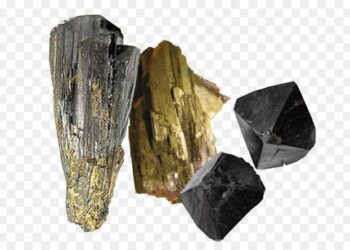
On Wednesday, March 20, 2024, Professor Adeniyi Olowofela delivered a lecture on sustainable groundwater strategies for long-term resource preservation at Bells University of Technology, College of Natural and Applied Sciences, the 17th lecture series of the University.
At Obasanjo University, Olowofela lambasts Governors that cannot provide pipe borne water for the people. He says, “Water has no enemy; Water has an enemy.” Anyone who vandalizes a borehole sunk for the people is an enemy of water and the people. Any Governor that cannot provide pipe borne water for the people is the enemy of the people. Anyone who destroys a pipe laid by the Government is the enemy of the people.
In his lecture, Professor Olowofela discussed the importance of groundwater, its sources, and explored various methods of groundwater exploration.
Groundwater, which makes up about 30 percent of all available freshwater in the world, is found beneath Earth’s surface in rocks and soil pore spaces. Aquifers, units of rock or unconsolidated deposits that can yield usable quantities of water, play a vital role in storing and transmitting water.
Professor Olowofela, who is a professor of geophysics, explained the internal structure of the Earth, consisting of the outer silicate solid crust, a highly viscous asthenosphere and solid mantle, a liquid outer core generating the Earth’s magnetic field, and a solid inner core. He emphasized that all human drilling has never gone beyond the crust, which is a thin layer of the Earth’s interior, and the ground, in turn, is a thin layer of the crust.
The lecture also covered various zones and areas related to groundwater, such as the unsaturated zone, vadose zone, soil moisture zone, capillary fringe, saturated zone, phreatic zone, and water table. Professor Olowofela highlighted the differences between unconfined aquifers, which are in contact with atmospheric pressure, and confined aquifers, which are trapped under layers of impermeable rock and experience artesian pressure.
Addressing the contamination of groundwater, Professor Olowofela, who is also the present Federal Character Commissioner and former Commissioner for Education in Oyo State, explained that while unconfined aquifers used for water supply are often contaminated by surface waste and chemicals, confined aquifers are less likely to be contaminated and provide supplies of good quality. He discussed mechanisms of transport, including advection and dispersion, and the importance of porosity and permeability in determining the transmission properties of aquifers.
The lecture also delved into the methods of groundwater exploration, including surface methods and subsurface methods. Surface methods, such as geomorphic, geological and structural, soil and microbiological, remote sensing, and surface geophysical methods, are easy to implement and require minimum facilities. On the other hand, subsurface methods, such as test drilling and borehole geophysical logging, are more expensive but provide more accurate observations and measurements.
Among the subsurface methods discussed, the electrical resistivity method stood out. This method involves measuring the subsurface resistivity distribution using electrodes to determine geological parameters related to mineral and fluid content, porosity, and water saturation in rocks. Different electrode arrays, such as Wenner, Schlumberger, pole-pole, pole-dipole, and dipole-dipole arrays, are used for resistivity measurements.
The lecture also touched on the importance of groundwater monitoring for managing aquifer response and quality threats. Professor Olowofela emphasized that monitoring networks and data interpretation are crucial for controlling the impacts of groundwater abstraction and contaminant loads. Wells, including abstraction wells and observation wells, are instrumental in providing in-situ data and detecting potential changes in groundwater flow and quality.
Reflecting on his own contributions, Professor Olowofela mentioned his research on resistivity meters and other projects in Oyo State, Ogun State, and Lagos State with his research team. He also highlighted his role as the Chairman of Ido Local Government in Ibadan, Oyo State, from August 2011 to December 2014, where he provided over 100 wells for the local community.
In conclusion, Professor Olowofela emphasized the importance of providing portable water as a primary function of all tiers of government and well-meaning Nigerians. He stated that there is no pure water but good water, and anyone who destroys water facilities provided by the government is an enemy of the people. Finally, he expressed gratitude to the management of Bells University for providing the opportunity to deliver this lecture.











